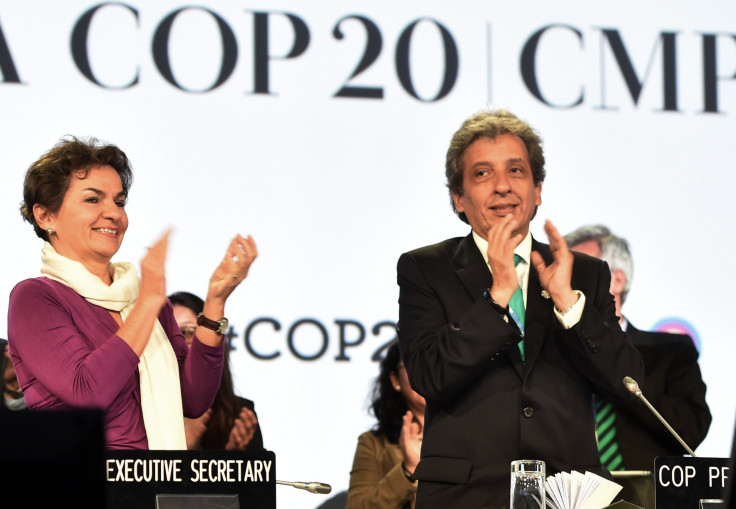Climate Change Deal Agreed At UN Negotiations In Peru

United Nations member states have agreed an agreement on tackling climate change at negotiations in Peru, that ran days longer than scheduled.
The deal will see each country set a target to reduce carbon emissions by next year. It also significantly departs from one of the core principles of recent international climate change negotiations -- that rich countries should carry the burden of emissions reduction, according to the Guardian.
Environmental groups criticized the agreement as weak and ineffectual, saying it weakened international climate rules, according to the BBC.
Language on the nature of the emissions reduction pledges in the agreement was watered-down, saying they "may" instead of "shall" include quantifiable information showing how countries intend to meet their emissions targets, according to the Associated Press.
Developed countries had wanted the pledges to focus on greenhouse emissions cuts, while developing nations want to see commitments of financial support to absorb the effects of climate change, which the UN estimates will amount to at least $200bn annually by 2050, according to Sky News.
The agreement now sets the stage for a what is billed as a global climate agreement, which is to be negotiated in Paris in late 2015.
The U.N. Climate Change Secretariat warned however, that the combined emissions reduction pledges will not be enough to limit global warming to an agreed goal of 3.6 degrees Fahrenheit above pre-industrial times.
Paul Bledsoe, a Clinton administration climate change aide told the New York Times that the success or failure of the deal reached in Peru would only become clear in the coming months.
“The really difficult issues -- financing, adaptation, monitoring and ultimate emissions reductions -- are left to be ironed out over the next 12 months.”
© Copyright IBTimes 2024. All rights reserved.












